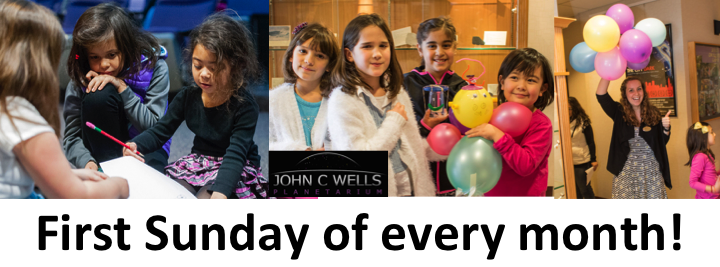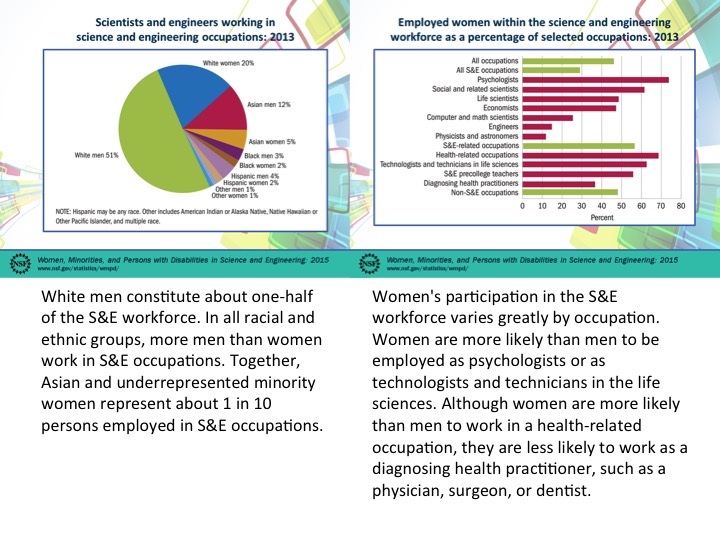
Welcome back for the 2023-2024 School Year
Frequently Asked Questions
While registration is not required, due to increased attendance we ask that you register in advance so we know how many people to expect. Use the following link to register:
All events take place at JMU's John C. Wells Planetarium unless otherwise specified in the schedule above. The Planetarium can accommodate up to 72 people and seats are first come, first seated.
All Science Sunday events are free! If you would like to submit a tax-deductible donation to the Planetarium to help support our mission of inspiring the next generation of scientists and engineers, you may use this online form. THANK YOU!
Parking on campus can be a nightmare at the best of times. Please have a look at our parking page for suggestions on where to park.
Our summer Space Explorers camps welcome everyone, our public Saturday shows welcome everyone, our public science talks and star parties welcome everyone, but our #ScienceSunday effort -- this one event -- is designed to encourage girls, but all are welcome to attend. One of the goals of this event is to inspire more girls to think about entering science & engineering. Study after study shows that our society does a poor job of encouraging to enter STEM fields.
The point is precisely that there is NOT a level playing field as pointed out above! A girls-only event exist to provide a space where their voices can be heard without anyone else talking over them, to be immersed in an environment where they see/interact with other girls like them, and to see positive, female role models whether it be JMU students or faculty. Men's groups (fraternities, service groups, men's clubs) exist for the same reason. Moreover, there is now a great deal of evidence on implicit bias that suggests in co-ed environments, boys are taken more seriously in classrooms, tend to dominate discussion, get called on more frequently by their instructors. This sends the subtle message that they have more of a right to be there. In a girls-only context, this tendency to pay more attention to boys cannot occur. Given societal stereotypes and socialization, events like this tend to be supportive and empowering, making them more fun and less stressful.
GirlStart, another "girls only" program whose motto is "empowering girls in science, technology, engineering, and mathematics", report that "nearly 4 in 5 STEM college students say they decided to study STEM in high school or earlier, and parents say STEM interest begins at an early age (8.2 years)." Anecdotal testimony from that program found that parents and students overwhelmingly use the words ‘fun’, ‘interesting’ and ‘encourage’ when asked what can be done to help children become interested in STEM. “Expose them at an early age, show them it is fun and interesting.” “Fun games—see how STEM is actually applicable to real life.” Programs like GirlStart and our Science Sunday series help address the nation’s STEM crisis by building STEM skills at the same time we foster girls’ interest in STEM electives, majors, and careers.
About
We've long known that the lack of diversity in STEM (science, technology, engineering, and mathematics) fields has been a persistent problem for decades. When we ask our Space Explorers to describe what they think a scientist looks like, we see traditional stereotypes of "white", "male", and "old" year after year in their illustrations. Are scientists really different from everyone else? Are they "six sigma deviants" on some Bell curve?! Surely in the 21st century, these are just outdated stereotypes, right? A prominent Caltech astronomer Dr. Shrivinas Kulkarni recently commented to NPR that "many scientists, I think, secretly are what I call 'boys with toys'". At a conference in 2015, Sir Tim Hunt, the 2001 Nobel laureate in Physiology or Medicine said, "Let me tell you about my trouble with girls. Three things happen when they are in the lab: you fall in love with them, they fall in love with you, and when you criticise them they cry."
Even here in the Shenandoah Valley we have heard from parents and students alike about these outdated ideas about who can do science and who can't. We say science is for everyone but our caricatures of scientists, our words, and our actions say something else. We cannot continue to exclude from our classrooms and labs roughly half of our population. By doing so, we are not only limiting the conversation but we are also excluding bright minds that can bring their talent to bear on some really tough problems.
As the image below from a recent NSF study shows, white men currently make up 51 percent of all STEM jobs despite making up only 31 percent of the population — which means women and most minority groups are underrepresented and underserved. Not only does this contribute to race and gender wage gaps — STEM workers typically have higher salaries and currently enjoy a lower rate of unemployment than the general working population — but it also critically shortchanges the STEM community, since it means there are talented minds that haven’t been reached and important perspectives that are missing. Science Sundays... for Girls is our small contribution in encouraging young American girls in the Valley to consider careers in science & engineering. Science is for everyone and its important that young girls know that and see that in action!
JMU College of Education M.A.T. candidate Sara Clemmer and IDLS junior Gretchen Blincoe, two John C. Wells Planetarium educators, comment on why they want to see a program like this, "We want to increase girls' interest in STEM by creating a supportive environment where we get to nurture the creative spark that can on occasion be stifled if not cared for correctly. Our goal is to promote the successes of women in STEM fields, and let students know that these activities are fun. Sometimes students mentally shut down when they hear “STEM” because they might think they aren’t smart enough to complete the activity. They don’t realize that these activities include creating and designing something. We want our students to be proud of their accomplishments, and feel safe expressing their pride.
In the Press
- "'Science Sunday for Girls' combats classroom stereotypes", The Breeze, December 3, 2017
-
"After 36 years in a closet, JMU planetarium canvas surfaces", The Breeze, September 21, 2017
- "Eyes In The Sky: JMU Planetarium Hosting Monthly Events To Get Girls Interested In Science", Daily News Record, Monday, March 7, 2016.

